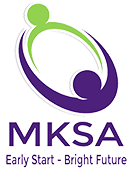A multidisciplinary committee, in every New York State school district, who ensures timely evaluation and placement of preschool students (ages 3-5) with disabilities. Members may include: student’s parents, regular education teacher, special education teacher, school psychologist, school district representative, evaluator, parent member, representative from the municipality and other people with knowledge or special expertise regarding the student.
Archives: Terms to Know
Conceptual Disorder
Disturbances in thinking, reasoning, generalizing and memorizing.
Cognitive Ability
Intellectual ability, thinking and reasoning skills.
Central Auditory Processing Disorder
A person with this disorder typically has normal hearing sensitivity, but experiences difficulty analyzing or making sense of what they hear.
Behavior Modification
A technique intended to change behavior by rewarding desirable actions and ignoring or “negatively rewarding” undesirable actions.
Behavior Intervention Plan (BIP)
A plan that is developed based on the results of the Functional Behavioral Assessment and includes a description of the problem behavior and intervention strategies to address the behavior.
Autism Spectrum Disorder (ASD)
ASD is a spectrum of neurobiological and psychological conditions that affect a child’s ability to interact, communicate, relate, play, imagine and learn. It encompasses a wide range of intensity, symptoms and behaviors, types of disorders, and considerable individual variation.
Attention Deficit Hyperactivity Disorder (ADHD)
A disorder affecting children and adults, characterized by problems with attention, impulsivity and over-activity.
Attention Deficit Disorder (ADD)
A disorder characterized by problems with attention without impulsivity and hyperactivity. Children with ADD are often described as being more passive, fearful and apprehensive. They may appear to be daydreaming and not attentive to what is going on around them.
Assistive Technology Device (ATD)
Any item, piece of equipment or product system, whether purchased off the shelf, modified or customized, that is used to increase, maintain or improve the functional capabilities of a student with disabilities.
